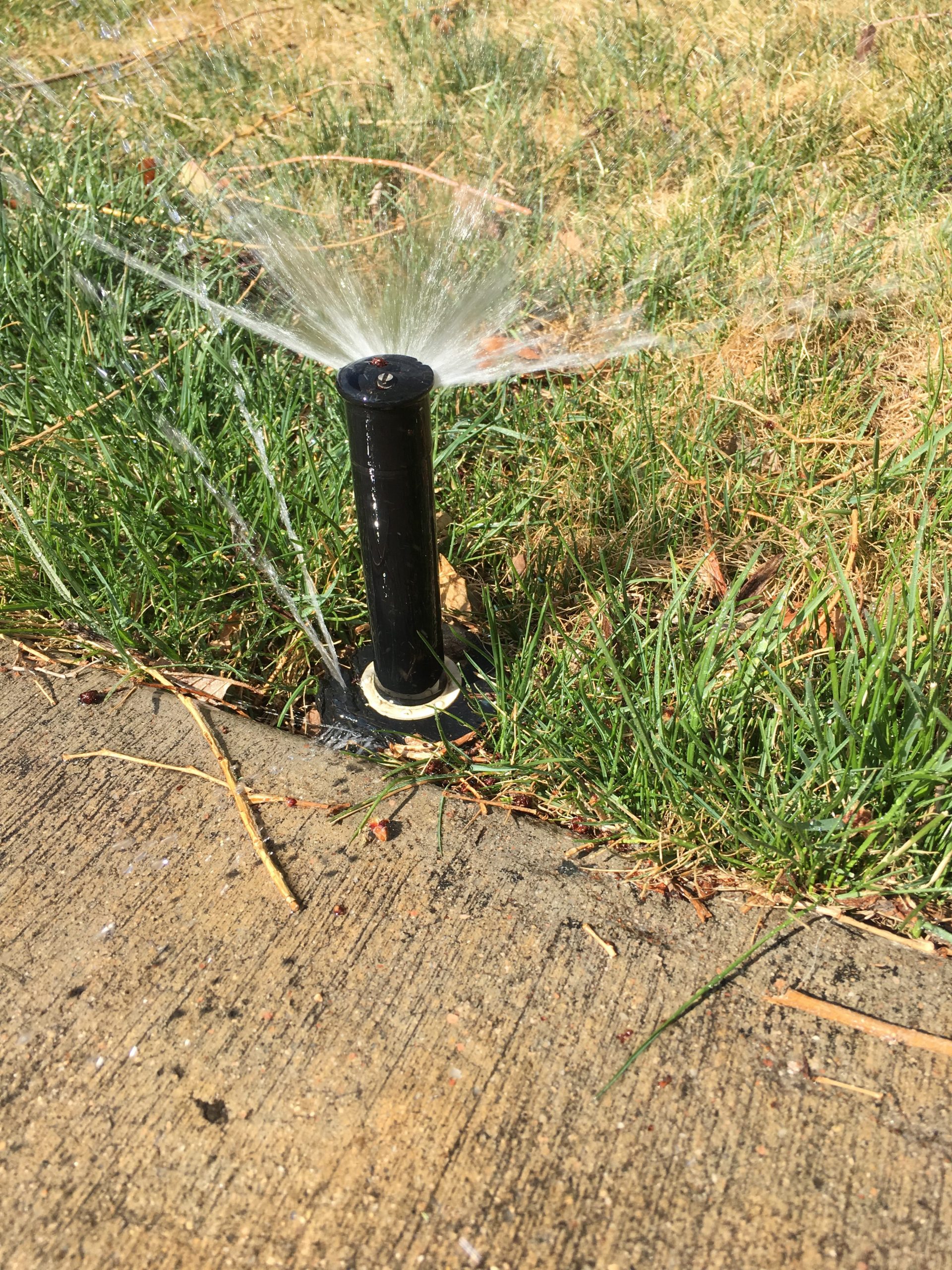The Sprinkler Guy Money Saving Tips Page
Everybody likes saving money, as an added benefit these tips also will save water.
So there you go – you’re saving money and the environment.
Tip 1: Get your Sprinkler System Audited & Tuned
Lots of small problems can add up to a big water bill. Most things can be fixed cheaply and quickly.
Here’s a List of things you can look for yourself:
Leaks are especially wasteful. Small leaks in your system can really add up to a big bill. While the systems is Off walk around and see if any of the heads are leaking water.
Over Spray is another big waste. Don’t waste water by watering the side of the house, the driveway or the street. If you want to water the neighbors lawn – that’s up to you and your neighbor. Please see our Over Spray page for more information.
Broken heads Turn your sprinkler system on and see if any of the sprinkler heads aren’t doing what they’re supposed to. (Cycle through all the zones)
Misaligned heads Is the water going where you want?
Those are all pretty easy to spot. After 30+ years you won’t believe how fast I can spot these problems and more and fix them almost as fast.
Tip 2: Cycle & Soak
The new science in sprinklers is called cycle and soak. We run two shorter cycles instead of one long one, with a “soak” time in between cycles.
Cycle & Soak works on several principles:
- Water absorption into the soil is limited by factors such as clay, slope and compaction, so water less-more often. In Colorado, after about 5 min of watering you will start to see more runoff than absorption.
- It may be windy at the start time of the first cycle, but not so at the beginning of the second (or third).
- It promotes a healthier lawn. When water has a chance to soak deeper your lawn’s roots will go deeper as well.
- Water running down the street doesn’t make the street grow, it just costs you money.
Tip 3: Water in the Early Morning (12:00am & 3:00am)
Water at midnight and then again at 3am (see cycle & soak above) This will give your lawn the best chance at absorbing as much of the water as possible. If you water while the sun is up a lot of your water is going to evaporate. Note: Some people say “don’t water at night, you’ll get mold or a fungus in your grass”. This is not applicable in Colorado as we have very low humidity, so don’t be concerned if you read about this on other sites. Water early in the morning with the Cycle and Soak method and give your lawn and soil every chance to absorb the water.
Tip 4: Install a Rain Shutoff Device
Very simply put this sensor shuts off your Sprinkler system when the ground is wet. Watering a wet lawn is a complete waste of money, and if it’s happening after one of our Colorado Monsoons, it’s probably harmful. This is also great to have if you plan on ever going on vacation as it will automatically shut off your system when ever it rains whether you’re there or not.
Tip 5: Remove Obstructions and Fix Low Sprinkler Heads

Check your sprinkler heads to see if any are too low. Pop-up heads should be even with the ground. Low sprinkler heads will be blocked by the surrounding grass and cause uneven watering.
See our Too High Too Low page for more information.
Check to see if tall grass, ground cover plants or overgrown shrubbery is blocking any heads. This will also cause uneven watering.
Tip 6: Keep your Irrigation System in Good Repair!
OK this one is going to sound like a sales pitch – But, it’s the truth! Don’t wait to get your system fixed. If something breaks, shut the system off and call us immediately. See our Help! page for how to shut off your system.
Would you consider turning your kitchen faucet on full and just letting it run for 10 min? If you have a broken head, you’re doing that every time the sprinklers go on. You may have heard from numerous government agencies that a dripping faucet will use 200 gallons/day. A very small leak in your sprinkler system will do the same thing. A relatively simple way to check for leaks (in your house and in your sprinkler system) is to check your water meter. Make sure the water is turned off throughout the house. e.g. make sure the toilets, dish washer, washing machine, or any faucets are not running in your house. Then look at your water meter. IF it’s still spinning you’ve got a leak somewhere.

